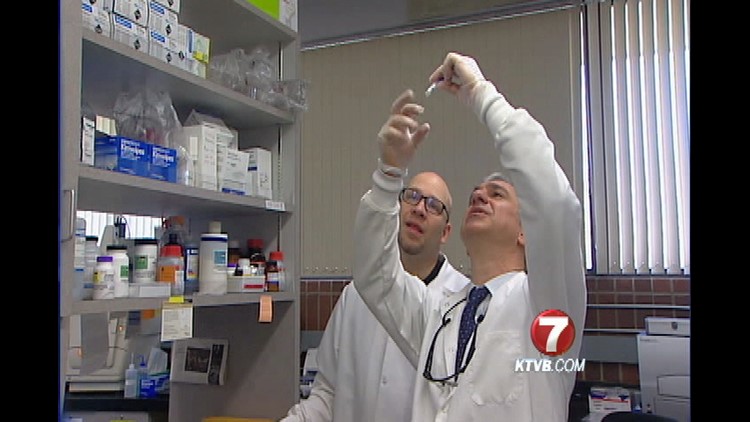BOISE -- Imagine the horror of being wrongly convicted of a crime you didn't commit, and facing life in prison or even the death penalty. One Boise State Professor can imagine that, and is trying to help those wrongly convicted.
About two weeks ago, Seattle's Amanda Knox was freed from an Italian prison after a judge overturned her murder conviction. But it wouldn't have happened without BSU Professor Greg Hampikian Ph. D., who played a key role in the analysis of the DNA that was at the center of Knox's appeal.
We were very happy to work on Amanda's case and see it resolved, said Hampikian. It took tragically long, four years, but it takes a long time to undo an injustice.
The Knox case is just one example of what this forensic genetics expert is trying to do in Idaho, and around this country as well as the director of the Idaho Innocence Project at Boise State.
Every crime is unique, and the evidence collected is unique, said Hampikian. So you have to try to look at the evidence in the context of that particular case.
The non-profit organization offers free investigative help to the wrongfully convicted. The volunteers and staff include lawyers and forensic experts in polygraphs, fingerprints, bones, and DNA, like Hampikian. But he said while they do experimentation, the hard work is actually being done by the police officers, prosecutors and state labs.
Honestly, most of what I do with the Innocence Project worldwide is look at evidence that others in law enforcement have collected, Hampikian said.
The IIP receives about 100 case requests per year, about 70 of those coming from Idaho prisoners. Hampikian said it's not easy deciding what handful of cases they'll take.
New science and new information, that's what we look for, he said. We just want to be able to test. I cannot tell who is telling me the truth and who is lying.
So far, the IIP has helped other Innocence Projects with nine exonerations, four of which led to new suspects through DNA. They've also helped pass new legislation in Idaho to help in DNA investigation.
Dr. Hampikian hopes the work they do now can continue to help law enforcement in the future.
I haven't met somebody who's malicious in this business, he said. Generally, these are just mistakes, and mistakes maybe that could be avoided if we learn the lessons.
Since 2005, the Idaho Innocence Project has also been working to help start Innocence Projects in other countries and established the International Innocence program, which is reviewing DNA cases outside the United States.
Hampikian will speak at a Food for Thought forum at noon Monday on the BSU campus. It will be in the Student Union Simplot Ballroom, and is free and open to the public.



